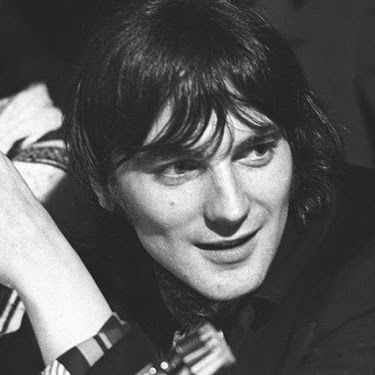Chris Wood (Chris Wood)

Born in Quinton, a suburb of Birmingham, Chris Wood had an interest in music and painting from early childhood. Self-taught on flute and saxophone, which he commenced playing at the age of 15, he began to play locally with other Birmingham musicians who would later find international fame in music: Christine Perfect (later Christine McVie), Carl Palmer, Stan Webb, and Mike Kellie. Wood played with Perfect in 1964 in the band Shades of Blue and with Kellie during 1965-1966 in the band Locomotive. He attended the Stourbridge College of Art, then the Birmingham School of Art (Painting Dept.) and subsequently was awarded a grant to attend the Royal Academy of Art starting in December 1965. Aged 18, Chris Wood joined the Steve Hadley Quartet, a jazz/blues group in 1962. His younger sister Stephanie designed clothes for the Spencer Davis Group, based in Birmingham, and it was through her that Wood was first introduced to fellow Birmingham native Steve Winwood. A well-known Birmingham club – the Elbow Room – was an after-hours haunt of local bands and musicians and it was here that Wood used to meet up with Winwood and Jim Capaldi. At the age of 18, Winwood abandoned the Spencer Davis Group at the height of their popularity and, along with Wood, Capaldi, and Dave Mason, formed Traffic. To focus his fledgling band, Island Records’ founder Chris Blackwell arranged for the four to retreat to an isolated farmhouse on the Berkshire Downs near Aston Tirrold. Initially without electricity, telephone or running water, The Cottage (as it became universally known) was so remote that a generator had to be installed to power the group’s equipment. A concrete outdoor stage was built with the band’s stage equipment set up to overlook the surrounding fields. After six months honing their music, Traffic released their first single, “Paper Sun”.
In Traffic, Chris Wood primarily played flute and saxophone, occasionally contributing keyboards, bass and vocals. Wood also co-wrote several of Traffic’s songs, particularly during the earlier period of the band’s recording career. His most notable contribution is as the co-writer (with Winwood and Capaldi), of “Dear Mr. Fantasy”. Wood introduced the 17th century traditional song “John Barleycorn” to the band after hearing it on The Watersons album Frost and Fire. It became the title song of their 1970 album, “John Barleycorn Must Die.” Wood played with Jimi Hendrix in 1968, appearing on Electric Ladyland. When Winwood temporarily formed supergroup Blind Faith in 1969, Wood, Mason and Capaldi joined Mick Weaver otherwise known as Wynder K Frog, to become Mason, Capaldi, Wood and Frog. He then went on to tour the United States with Dr. John, where he met singer Jeanette Jacobs (formerly of the 1960s girl group The Cake). Wood and Jacobs married in November 1972, at Kensington Registry Office, when he was 28 and she was 22. In 1969, Wood also appeared on the eponymous second album of Free and the Small Faces’ The Autumn Stone. In 1970, Wood and his wife, along with Steve Winwood, joined Ginger Baker’s Air Force, releasing one album before reforming Traffic. Wood remained with Traffic from the time of its 1970 reformation until its 1974 breakup. He played on John Martyn’s Inside Out (1973). Throughout Traffic’s life, Chris was also in demand as a session musician with his immediately identifiable flute or saxophone playing cropping up on albums by Rebop Kwaku Baah, Tyrone Downie, Fat Mattress, Gordon Jackson, Crawler, The Sky, Bobby Whitlock and others.
Through much of his life, Chris Wood suffered from addiction to drugs and alcohol, which were initially attributed to a fear of flying. Tortured by his wife’s serial infidelity while immersing himself in musical experimentation, Chris turned to more drink and drugs for solace. When a liver disease was identified, indulgences were stopped, though the medication produced even more devastating effects that most people (and even close friends) wrongly interpreted – none knowing the internal agony Chris was living with. His wife Jeanette, from whom he had separated, died in 1982, at the age of 30, from the effects of a seizure. Wood was profoundly affected by her death. The death of two close friends, Free’s Paul Kossoff and former band-mate Rebop Kwaku Baah followed by that of his (by now, estranged) wife laid very heavy on Wood. In 1983, while working on a solo album that was to be titled Vulcan, Wood died of pneumonia at Queen Elizabeth Hospital in Birmingham, England.
Born
- June, 24, 1944
- United Kingdom
- Quinton, Birmingham, England
Died
- July, 12, 1983
- United Kingdom
- Birmingham, England
Cause of Death
- pneumonia


